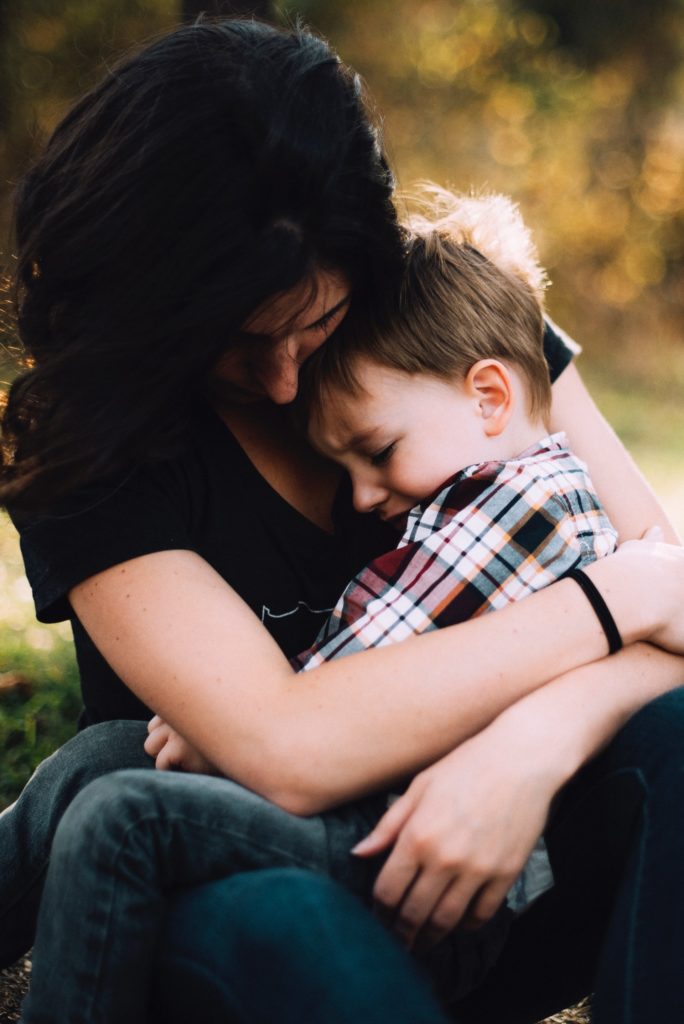What are some common parenting mistakes that parents make that can harm the mental and physical health of their children in the long run?
Everyone commits mistakes and there are no exceptions to parents. Parenting children put a lot of pressure on parent’s shoulders and parent’s decision-making or setting the correct example often fails. The positive thing, though, is that if parents are aware of their errors, they can correct themselves.
Common Parenting Mistakes That Parents Make
It’s no easy task to be a parent. In the meantime, however, there is a lot to learn, both for the parent and the child. Learning by experience allows a parent to give his or her child a healthy upbringing.
Some may find it easy to parent, while others may find it difficult. While there may be different experiences from person to person, parenting mistakes are very common. In reality, what many parents consider the obvious stuff to do has a negative effect on your child!
Here are some common parenting mistakes that parents make.
1. Over-protecting
In this day and age, parents become more worried and over-protective. We prevent them from making adequate mistakes by over-protecting them, which, if done properly, are invaluable learning opportunities. While it may sound like a good idea to protect our kids and prevent them from making mistakes, we are simply unwittingly denying them the ability to learn from their mistakes and take responsibility for their own actions. We also prevent them from building up their muscle of ‘frustration’ by not allowing them to face challenging emotions like rage and disappointment.
Unfortunately, shielding our children from difficult emotions does not prepare them for life in the ‘real world’ where, on an almost daily basis, we face such painful emotions. The assumption is that we now have a young generation that becomes less resilient to the trials and challenges of adult life and is growing increasingly dependent on their parents to work for them. What we need to aspire for is educating our children is that hardship is part of life and that they need to develop abilities to face all of the obstacles that life will inevitably bring about.

Image Source – Pixabay
2. Constantly Comparing with Others
This has an unfavorable impact on the kid. When a child begins school, it is normal for their grades to be compared to other classmates. It is important to remember that reminding the child continuously how others are better than them will not alter the grades. On the contrary, it affects their confidence. It would be ideal to sit down with them and ask them why they can’t do it, or whether they are facing some other issue.
3. Getting Angry and shouting
It puts our children in “challenge” mode when we raise our voice and scream – that means that their rational brains shut down and basically can not “hear” us anymore. Their body is responding to stress. In ‘fight or flight’ mode, our children may get angry and scream up to ‘blue on the face,’ but the message will still remain unreleased and all the lectures usually taken in such circumstances will be a waste of energy!
If they follow our requests, they will only be afraid and have a very small effect on the long-term change in their conduct. Indeed, the reverse happens; if you are resorting to rage and yelling to try to alter the actions of your kids, it would be much less likely to listen to and function with you, and it may even destroy long-term relationships with the kids.
4. Punishing
While we need to make the children responsible for their acts, we can do this much more effectively, especially if the punishment is corporal than through punishment and fear tactics. Analysis reveals a long list of possible punishment consequences. Children who are punished frequently will only obey the orders and demands of their parents out of fear, and the effect is therefore only short-term. In the long run, punishment not only destroys our relationships with our children, but may make them more resentful towards us and violent and, in many cases, learn to lie to escape potential punishment.
5. Over-praising And The Use Of Constructive Reinforcement
It is a very common behavior to use phrases like ‘good boy’ and ‘good girl’ and to compliment all children do well to improve their good behavior. Unfortunately, using such “evaluation praises” and praising each good behavior explanation is a way of reward that you would expect to do more in the long term as an incentive for doing stuff. Research suggests, for example, that a child praised as “healthy sharer” would be less generous over time than a child who was not raised in this way. Using evaluation praise such as ‘you are intelligent/clever’ can also make you afraid to not fulfill this ‘mark’ and our standards, making you less able to confront new obstacles and afraid of making mistakes.
6. Preaching without Practicing
Many parents are accustomed to giving their children long and repetitive lessons, but they never obey what they preach. Children take their parents as the most significant role models and so always mimic them. You should learn to take the same approach your child if you tell your child that eating fast food is not acceptable all the time, smoking is detrimental to health or sitting on the television all day long.
7. Trying too Hard to Raise a Perfect Child
In the first time parents, this is one of the most common parenting failures. To ensure that the perfect child is raised, they become so harsh on them. They set strict rules, compel them to act in a certain way, and keep them under constant control. The child can only be withdrawn and the relationship between the parents and the children diminished. Parents should note that certain rules are necessary to obey but that the child’s response should be sufficiently flexible.
8. Reassuring children
For parents to want to comfort their kids by telling them everything will be alright, it seems like a natural thing. It’s a normal reaction to like to “swoop into” and try to comfort our kids, for example, when they happen to break their favorite toy and ‘fix’ the problem, so that we can say, “I hate seeing you so upset because you broke your favorite toy, don’t worry, I’ll buy your own.” We may think we support, but the fact is we do not encourage children to deal with their feelings. Children must be offered opportunities for persistence and for feelings of disappointment and anger and must be encouraged to take advantage of their mistakes since these are all important life skills that will help them prepare for the pressures of adulthood.

Image Source – Pixabay
9. Not Letting Your Child Explore
Our kids have been learning all the time since their birth. Your baby begins by looking at your face and eventually glimpsing your gestures to see other things. When your little child becomes a preteen, playing is their favorite form of learning and sometimes happens to be injured or hurt in this effort. This should not, however, be a justification to avoid the exploration. If parents keep protecting and rectifying their children constantly, they are not prepared to try new things or learn from their mistakes.
These are 9 common parenting mistakes that parents make that can harm the mental and physical health of their children in the long run.
Challenges and complicated circumstances are a problem for parents. It also has many benefits and great moments. Ignore these common mistakes and you’re good!
Our purpose is not to make parents become guilty because as parents we know just how hard children can be raised, and we still make mistakes in all our experience and expertise. Our aim is to help you become conscious of the effects of such mistakes on your children so that you can evaluate places where you might develop your abilities, and proceed with a new sense of trust along your childhood path.
Also Read: Parent-Child Relationship – Why It’s Important













